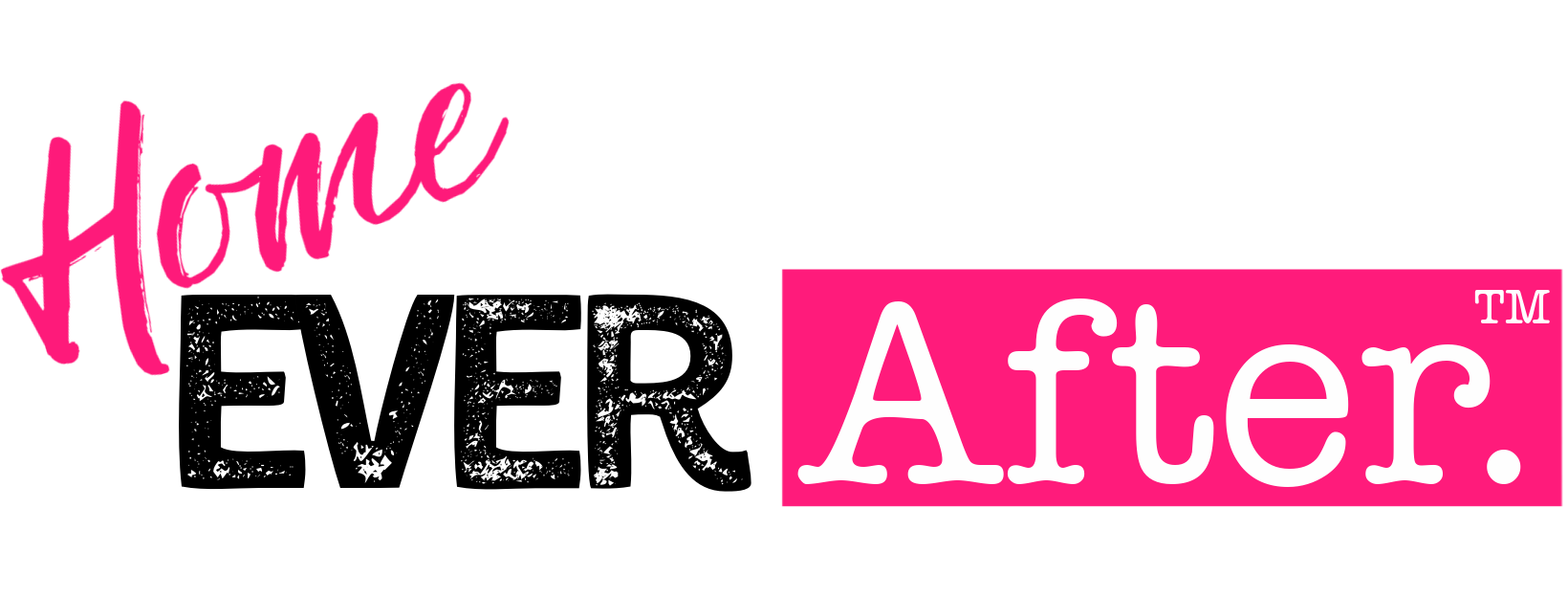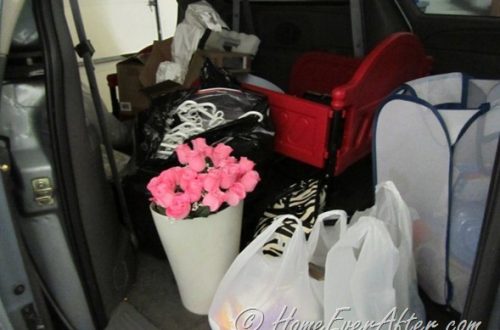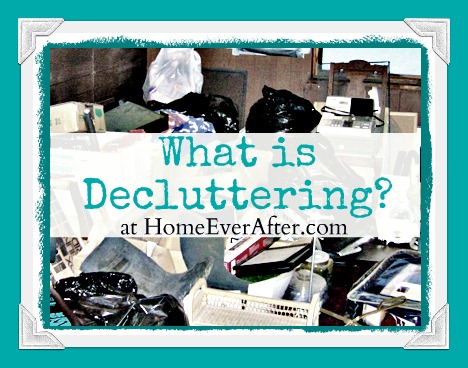
What is Decluttering?
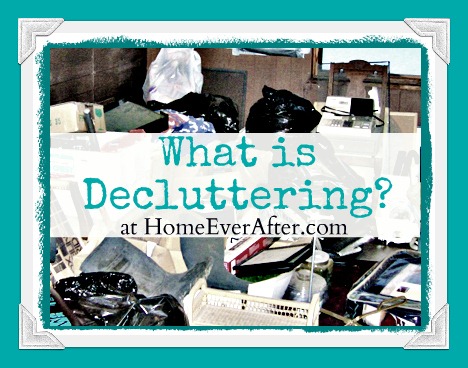
What is decluttering? At this point in the Declutter Your Home series, we need to get a good understanding about what decluttering is, what it involves, and what will be expected of you and your family members when you declutter.
What does decluttering mean? Decluttering is the act of gathering all of the items in a specific area or category and eliminating the excess. Decluttered items may be disposed of by selling them, giving them away, or throwing them away. Essentially, decluttering is getting rid of the unneeded stuff!
Technically, that defines the act of decluttering rather well. But what does it really mean to declutter your home or declutter anything, for that matter? What is involved in the process of decluttering?
Basically, decluttering is the season in which we purge, friends! We will ruthlessly cut out the non-essentials in our homes to uncover what is really important.
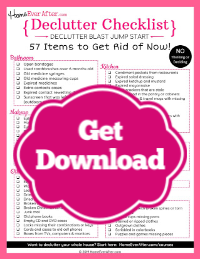
Get our free Declutter Checklist of 57 Things You Can Get Rid of Now (with no thinking or deciding for any of them!).
The Home Ever After definition of decluttering focuses just as much on the why as the how. To me, decluttering is a necessity for every person and every family (yes, including children) to maintain a comfortable living space. We cover this more later, so for now we’ll stick to defining what decluttering means.
Home Ever After has always been focused on helping people put together systems to organize, manage, and enjoy their lives. I couldn’t coach people to do things if I hadn’t done them myself.
Decluttering happens to be one of my areas of expertise, since I’ve practiced it myself and taught it to people (including kids!) for many years.
When I declutter, I first choose an area that is out of balance (too messy, too full, too complicated). Picking just one area to start with can be challenging! Then I plan to cut down the number of items in that area by replacing them with better items that accomplish more or just letting them go altogether.
Then, I gather the things I’ve decluttered (let go), and assign them a way out of my house or out of my life:
- give them away to friends or family
- sell them
- donate them
- throw them away
Dictionary Definitions and Origins of Clutter and Declutter
Although some English dictionaries don’t include the word “declutter”, we all know that it is the very opposite of – and the only thing saving you from being overcome by – clutter.
Merriam Webster Dictionary defines the verb clutter “to fill or cover with scattered or disordered things that impede movement or reduce effectiveness”.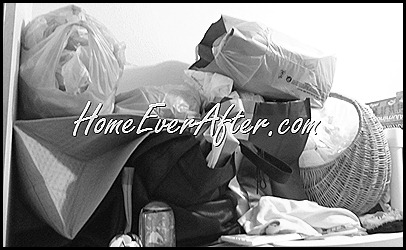
As a noun, Webster’s Dictionary defines clutter as “a crowded confused mass or collection”.1
Collins English Dictionary gives this definition of declutter: (verb) “to simplify or get rid of mess, disorder, complications, etc.”2
The word clutter has its roots in the Middle English words clotteren, which means “to form clots, to heap on”, and clot, and can be traced to its first uses in the 1400s and 1500s.
It’s clear from the original meanings of the word clutter that is causes a blockage in an area when things are piled up. This clutter blockage in your life can effect your health, happiness, finances, and social life in a negative way. Decluttering helps to get rid of the clutter “clot” from your life so that you can move on.
Declutter, unclutter, spring cleaning, cleaning house, purging, cut down, cut back, scale down, minimize – whatever you call your version of decluttering, they all mean the same thing: getting things under control before they control you!
Decluttering Isn’t Just for Mess
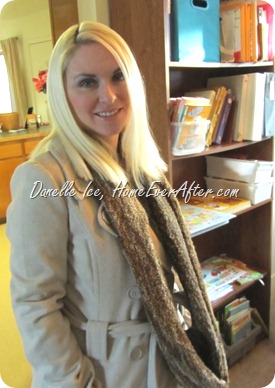 Sometimes you can tell right away that something needs to be decluttered because it looks messy. However, clutter can be a problem even if it hasn’t gotten to the “visually messy” stage yet.
Sometimes you can tell right away that something needs to be decluttered because it looks messy. However, clutter can be a problem even if it hasn’t gotten to the “visually messy” stage yet.
At the point where excess stuff starts to make you feel bad, feel overwhelmed, or feel stressed, it’s time to start decluttering and put a regular decluttering schedule in place.
Clutter Problems Happen Over Time
When a hoarding home is shown on television, you can look at it right away and know that it needs to be decluttered badly!
But while you look at the messy house bursting at the seams with clutter, you also hear that quiet voice inside your head reminding you that it didn’t get to that extreme point all in one day… or one month… or one year.
Clutter builds up and multiplies slowly over time, and in many areas all happening at the same time. Clutter continuously grows around you as you adjust to it being there. This can lead to the effect of “putting on blinders” to the seriousness of your clutter problem.
How Do I Know When Something Needs to Be Decluttered?
It’s time to declutter an area if it has grown to a size, shape, or complexity which is out of harmony with its environment. We cover this in-depth later in the Declutter Your Home guide, but here are a few quick tell-tale signs that it’s time to declutter:
- You feel negative energy, crowded, or overwhelmed in certain areas of your home.
- You lose things constantly and spend unreasonable amounts of time looking for them.
- You buy things you know you already own because you can’t find them.
- Your things don’t fit in their designated areas anymore.
Decluttering Can Apply to Almost Anything
Although we’re talking about decluttering in the Declutter Your Home series specifically in a way that relates to your house and living area, decluttering can be applied to practically every area of life.
You can declutter almost anything as a way to achieve balance. Anything with “too much” can be decluttered, it doesn’t have to be only for tangible or material things.
For example, if you had too much email in your inbox, you would declutter your inbox by deleting, organizing, and setting up rules for processing email. If you were stressed out from too much to do and no calendar to keep track, you would declutter your mind by setting up a scheduling system.
What Things Can Be Decluttered?
If you’re new to decluttering and don’t know what types of things even can be decluttered, start by reading through the following list of examples to get inspiration. What things can be decluttered? You can:
- declutter clothes, shoes, accessories
- declutter food, ingredients, menus, recipes
- declutter storage items
- declutter paperwork, records, old tax returns
- declutter memorabilia and keepsakes
- declutter emails, digital files, digital music
- declutter photos (regular or digital)
- declutter your schedule (too much to do)
- declutter your scope (too many job duties which could be delegated)
- declutter your family responsibilities (chores aren’t assigned evenly)
- declutter your holidays (too many activities, too much traveling)
This list of decluttering examples barely scratches the surface of the things in your life that could benefit by being simplified.
Are you ready to continue on the Home Ever After Declutter Your Home journey with us? If you’ve committed to work through the decluttering process, start by getting your jump start declutter checklist free download below.
References
- Merriam Webster Dictionary. 06 Aug 2012. <http://www.merriam-webster.com/dictionary/clutter?show=0&t=1344230807>.
- Collins English Dictionary – Complete & Unabridged 10th Edition. HarperCollins Publishers.


